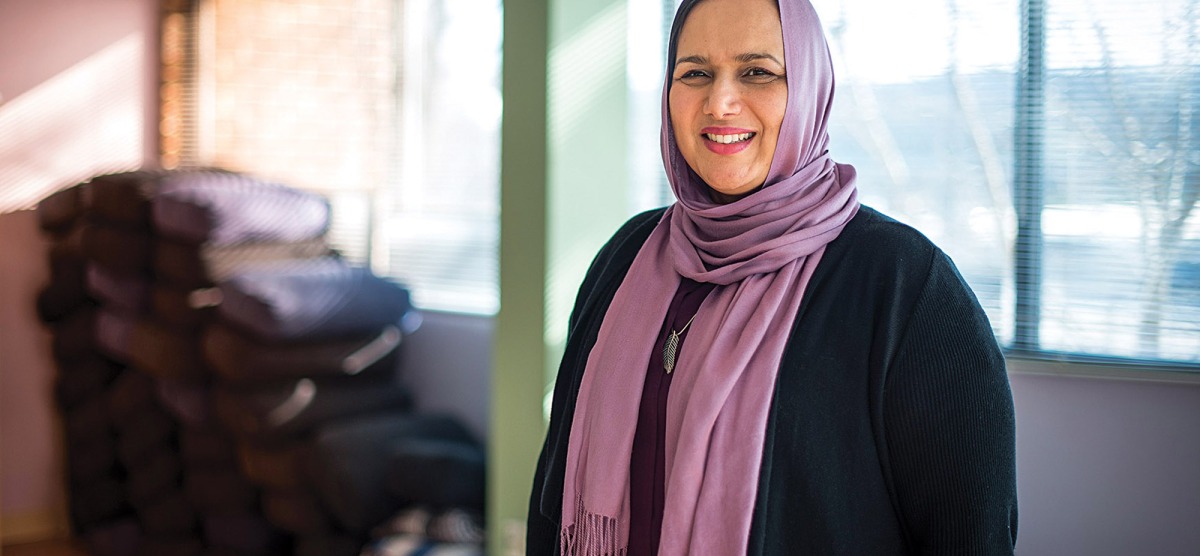
Taking Action for Social Justice
GSSWSR initiative launches with a conference on forgiveness.
“Social justice is the heart of our profession,” says Darlyne Bailey, Graduate School of Social Work and Social Research (GSSWSR) Dean and founding director of the Social Justice Initiative. “I’m thrilled that, this spring, we will convene ‘kindred others’ to launch SJI.”
Establishing the SJI is another way Bryn Mawr’s GSSWSR is drawing on its core value that all people deserve equal access to opportunities and resources that help them reach their highest potential. Through participatory research, curricular development, and community-based service, the SJI strives to advance knowledge and professional skills of those working toward a more socially just world.
Bryn Mawr Trustee Ana Mariá López ’82, M.P.H., M.D., and GSSWSR alumna Intissar BenHalim, M.S.S. ’11, are members of the SJI’s advisory council.
“Our society needs spaces, like those created by the SJI, where we can think deeply and talk in compassionate ways about difficult issues,” says Lopez. “What better place to do this than Bryn Mawr?”
Adds BenHalim, “Social justice is a value system that one needs to live and breathe. There’s power in providing spaces for people to engage in upholding this value system.”
On May 4, the SJI launches with a conference on forgiveness.
“Forgiveness is a primary component of social justice,” explains Bailey. “The root of injustice is the judgment, fear, and blaming of people labeled as ‘others.’ Forgiveness isn’t about forgetting injustice but can be part of moving from ‘otherness’ to ‘oneness.’”
Lopez adds, “Forgiveness can release the burden of hurt and allow that energy to be channeled into making social change.”
Speakers from around the country will attend the conference to explore forgiveness from various perspectives, from neuroscience to forgiveness between individuals within communities.
The conference should also inspire action. Says BenHalim, “The conference will involve participants in authentic social justice work. I hope everyone leaves equipped with tools to use in an action-oriented pursuit of social justice. This will be an interactive event. Everyone should walk away with specific actions for upholding social justice.”
“Following the conference,” says Bailey, “there are opportunities for the SJI to contribute to the social justice work of our curricula at Bryn Mawr and beyond. We can pursue research in such topics as the impact of forgiveness in families. And we’ll collaborate with community organizations that have a commitment to social justice.”
“The potential is great,” says Lopez. “All Bryn Mawr students can graduate with a deeper understanding of social justice, have access to compassion training, and be better equipped to engage in dialogues that build bridges.”
Continues Lopez, “Working toward social justice is critical in today’s world. In academic and research spaces, the SJI has the potential to be a national, or even international, leader.”
Published on: 03/17/2017